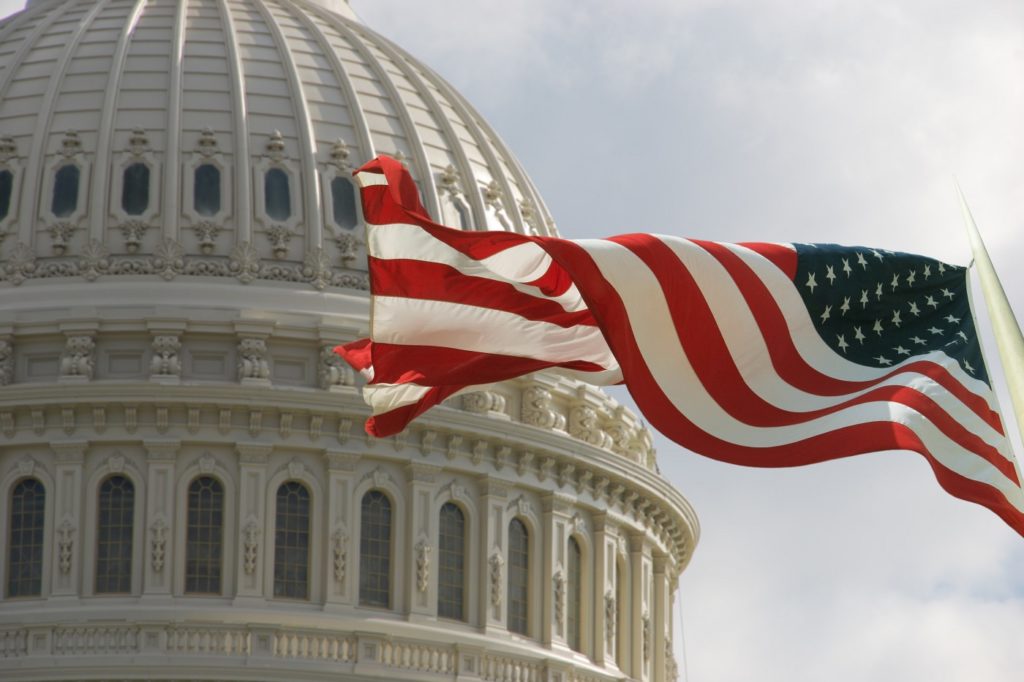Barring any unforeseen delays, the Senate Judiciary Committee will begin its hearings next week on the confirmation of Judge Amy Coney Barrett, to succeed the late Ruth Bader Ginsburg as a justice of the Supreme Court. Judge Barrett, who spoke at Princeton a year ago, will certainly be confirmed and appointed to the Court if the question of her qualifications is the decisive one—and if at least 50 Republicans stick together.
As I explain in an essay for the Wall Street Journal, the obsession of the Democrats and the media with Judge Barrett’s Catholicism is not really a sign of some general anti-Catholic bigotry on their part, but of their anxiety over the future of the abortion precedent, Roe v. Wade. After all, the Democrats’ presidential nominee is a Catholic. But as frequent PD contributor Samuel Gregg observed last week in the Washington Times, it’s only some Catholics the left has a problem with. If you part company with the Church on abortion, you’re the kind of Catholic they like. If you faithfully adhere to Church teaching, on the other hand, they will hyperventilate that you want to impose “the supposedly absurd beliefs of an inherently oppressive religion”—never mind that Catholic opposition to abortion relies on reason, not revelation. And never mind too that Roe v. Wade is vulnerable, regardless of one’s substantive view on abortion, as an excrescence on our constitutional law—which is the only ground necessary for a Supreme Court justice to call it into question.
I call Roe “the poison pill of our constitutional politics” in that WSJ essay, and with good reason. The defense of Roe’s illegitimate status quo drives the left’s flirtation with anti-Catholicism today, as it has before, and it has driven every ugly moment in our Supreme Court confirmation battles at least since Robert Bork was nominated by Ronald Reagan in 1987.
Most recently, Roe was the motive of the all-out attack on Justice Brett Kavanaugh two years ago, as Mollie Hemingway and Carrie Severino detail in their book on that episode, Justice on Trial. The abortion issue “loomed over the entire confirmation process—from the nationwide speaking tour ‘Rise up for Roe’ to the laser-like focus on the two Republican senators who support abortion rights, [Susan] Collins and [Lisa] Murkowski. Planned Parenthood and NARAL were there every step of the way, financing protesters, TV ads, and celebrity appearances.” Some people may still believe the last-minute accusations against Kavanaugh by Christine Blasey Ford—most do not—but there is no question that the eagerness of Democrats to credit her story owed everything to their desperation to defeat the nominee who would succeed Anthony Kennedy, who had cast a key vote to preserve Roe years before.
Start your day with Public Discourse
Sign up and get our daily essays sent straight to your inbox.The Kavanaugh battle was eerily reminiscent of the Clarence Thomas hearings of 1991, when Anita Hill accused the nominee of sexual harassment and nearly derailed his confirmation. Most Americans—of every race and both sexes—disbelieved her, but as in the Kavanaugh hearings years later, the fond hope of the left was that her charges would bring down a manifestly qualified nominee, who had already weathered the most intense questioning on his views on the Constitution and judicial responsibility.
Thomas’s friend and mentor, then-Senator John Danforth of Missouri, wrote a little-noticed book about the experience, Resurrection: The Confirmation of Clarence Thomas. As a senator, Danforth was able to provide an up-close look at his colleagues and their behavior throughout the confirmation process, and at Justice Thomas, whom he had befriended from the beginning of his legal career. The picture of the process is not a pretty one. The story of what Thomas at the time called a “high-tech lynching” is also well told in his own memoir, My Grandfather’s Son.
One of the more interesting features of the Thomas hearings—before the Anita Hill phase—was the questioning by then-Senator Joe Biden, chairman of the Judiciary Committee, who probed Thomas’s views on natural law, a subject the nominee had touched on in some of his speeches. Biden approached the issue as though a mere belief in natural law would make Thomas a rogue justice—rogue enough to strike down Roe v. Wade, the obvious subtext of Biden’s queries. But just four years earlier he had attacked Judge Robert Bork for allegedly being a positivist—that is, someone who disbelieved in natural law, and who therefore might reject . . . unenumerated rights like “a woman’s right to choose.” Any port in a storm, to seek shelter for the abortion license.
Bork, whose 1987 nomination was defeated, wrote devastatingly of his treatment at the hands of Biden and the Democrats in his 1990 book The Tempting of America. The book’s three parts are a brief history of Supreme Court jurisprudence, a defense of originalism as a method of constitutional interpretation, and an account of his nomination and its defeat in the Senate. This last is the strongest part of the book, and is must reading for anyone who wants to know how our confirmation struggles turned so ugly.
To understand the sea change of the Bork nomination, though, requires a view of the whole history of Supreme Court appointments. Still the best account, published in 2008, is the late Henry Abraham’s Justices, Presidents, and Senators (the fifth edition of a work originally titled Justices and Presidents). Professor Abraham died in February of this year at the age of 98, after a career as one of the two or three most influential political scientists studying the Supreme Court in the second half of the twentieth century. His history of Supreme Court appointments is the gold standard, and it’s a shame its author is gone, for it is unlikely to be matched by any subsequent history. One may consider it a measure of his book’s quality that it was plagiarized by a famous Harvard law professor.
In the weeks to come, let us hope—for Judge Barrett’s sake and for the country’s—that the confirmation process returns to something like its normal pre-Bork state. There never was a golden age when low politics didn’t enter into the process, but the furies unleashed by Roe v. Wade have driven the politics lower and lower. Perhaps one day the end of Roe will mean the end of “Borking” too. So we may fervently pray.














